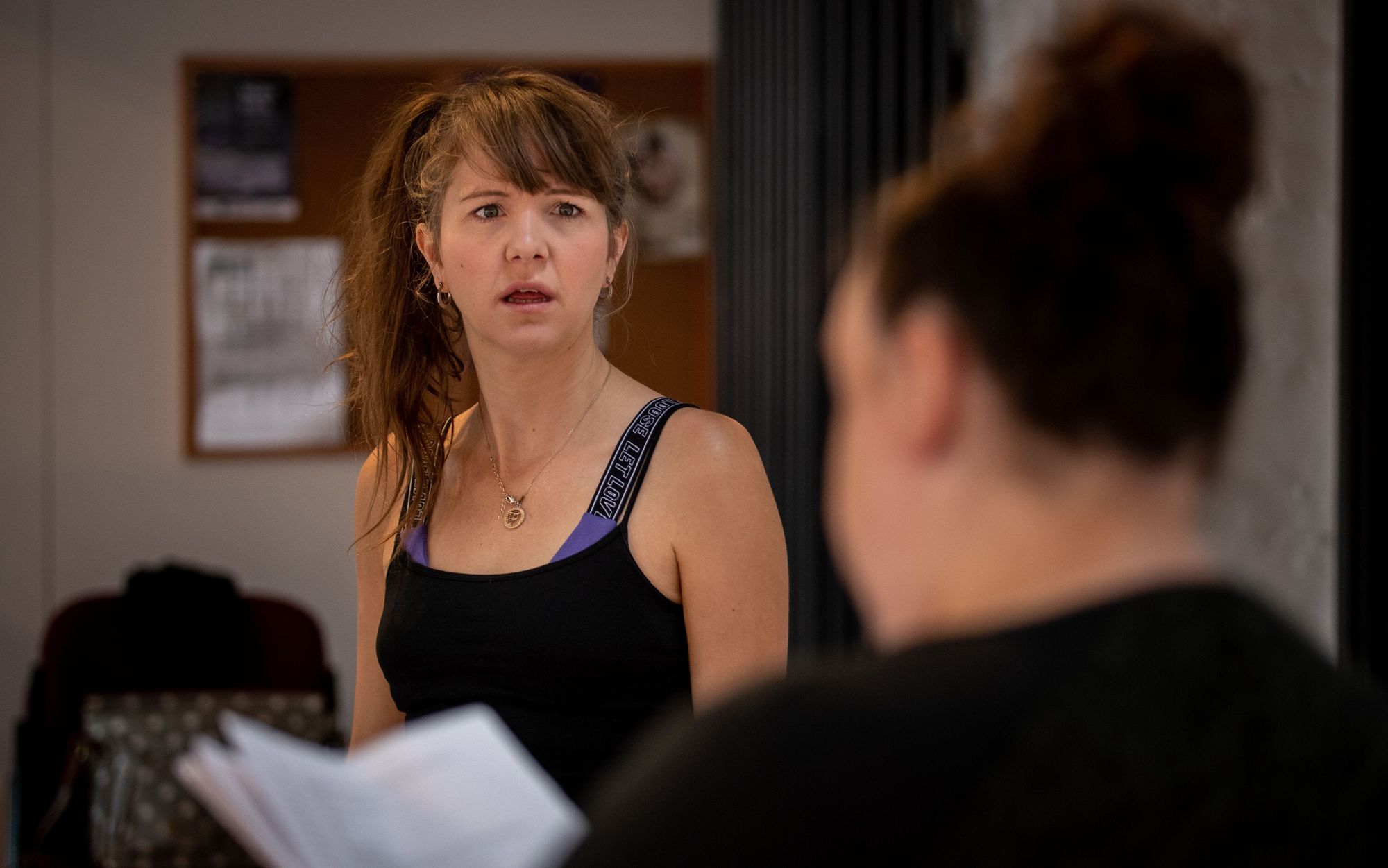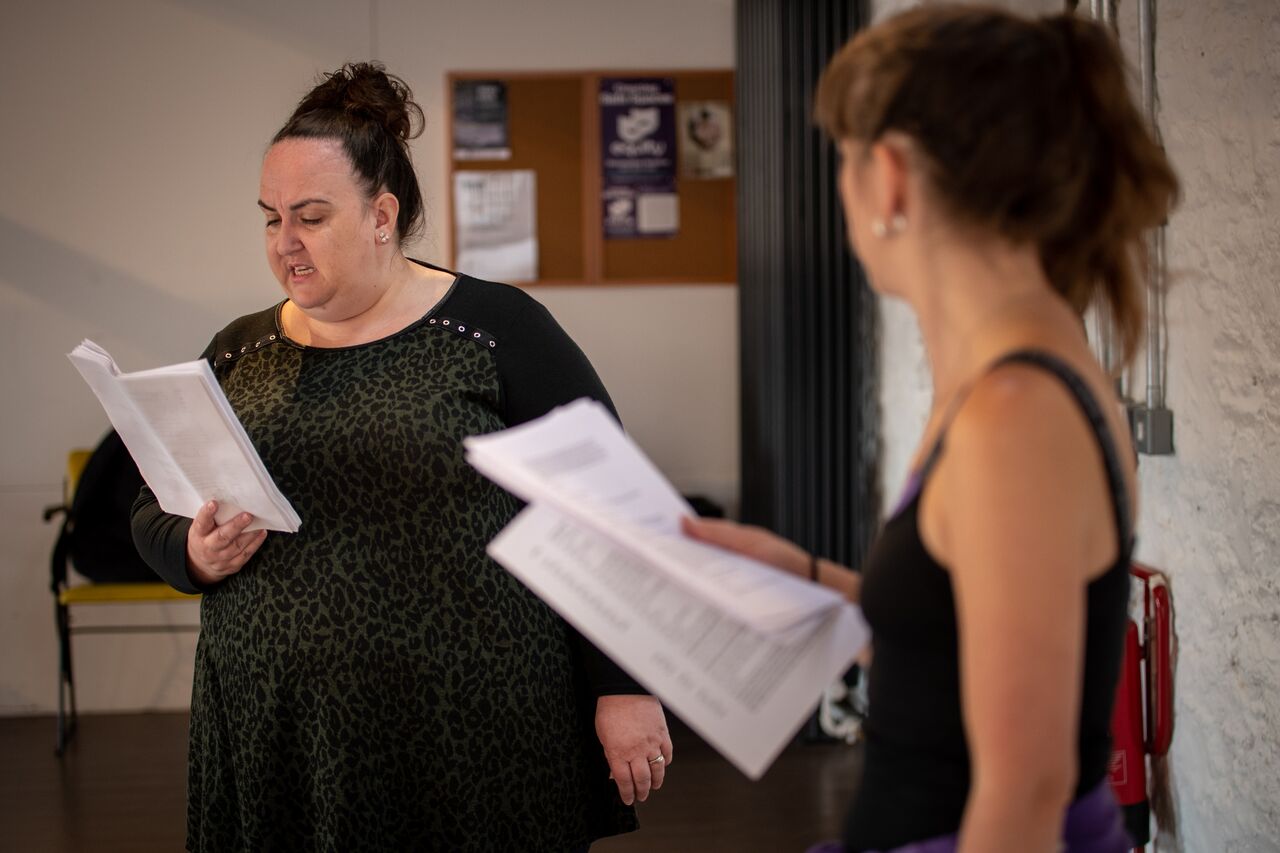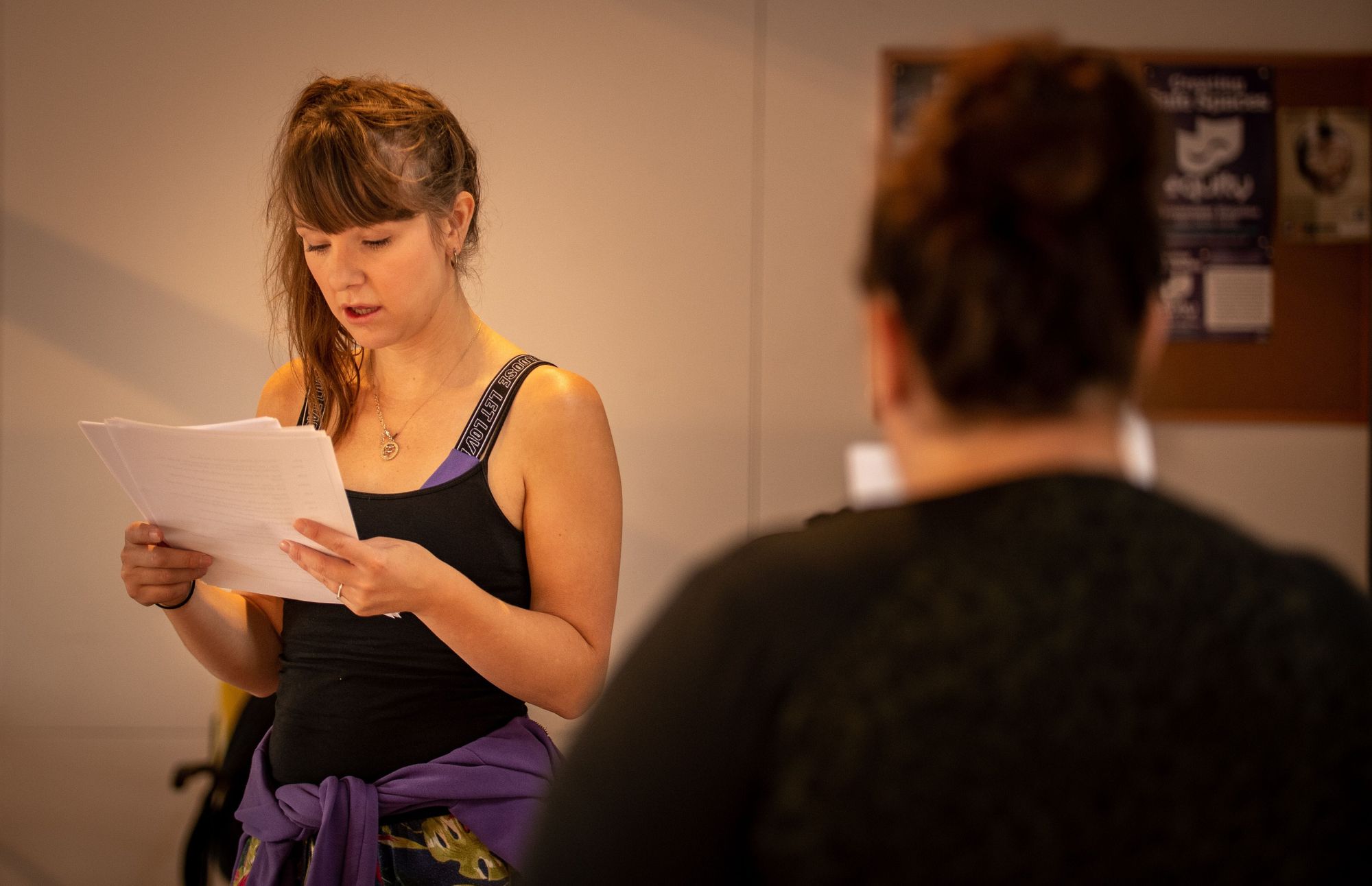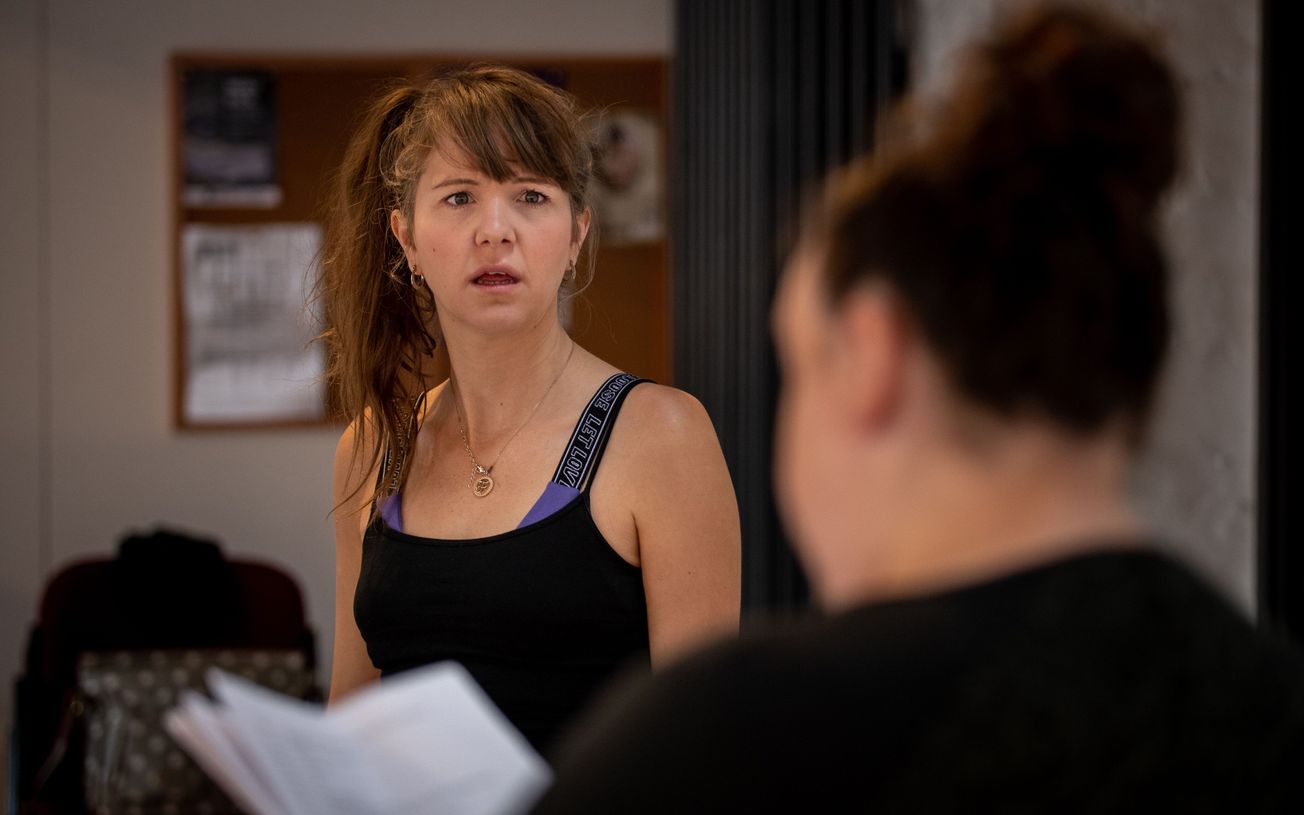By Serafina Lee, Deputy Digital Arts Editor
Set in a stifling basement in the midst of a nuclear apocalypse, this two-woman play is an emotional tug of war. A depressing, yet intermittently humorous play, ‘Everyone is Dead’ navigates the choices we make in the face of desperation, but is ultimately unconvincing in its political commentary.
Performed in Coopers Loft at Bristol Old Vic, the surroundings immediately established the confined tone of the play. Attic rafters hang over the audience, stacked cardboard boxes enclose the small stage area and a single kerosene lamp hangs despondently in the corner. Set in a parallel present day dystopia, the setting is disturbingly familiar with Barbies and DVDs poking out of the basement boxes. Seventeen year old Kelly (played by Florence Espeut-Nickless) steps out on stage clad in pyjama bottoms and a t shirt, followed by Ashley (played by Allson Fitzjohn) in a grey dressing gown; the normality is almost ridiculous. Trembling with fear, the young girl and the older woman hide whilst undefined invaders ransack the house.

With such pared back staging and props, the narrative relied heavily on Espeut-Nickless’ and Fitzjohn’s performances. Dealing with a script that at times felt wooden with contrived jokes, Allson Fitzjohn in particular carried the intermittent moments of ingenuity. The chemistry between the women sustained itself well, and at times their dialogue was realistically layered, stumbling over each other as they bounced back and forth. The loud crescendoing tensions and humorous banter could snap in an instant. Drawing on John Krasinki’s 'A Quiet Place', the relief of their laughter is shattered when Ashley accidentally turns on a garishly loud toy car. The tension is highest as they freeze in silence, eyes glued upwards as the echoes of footsteps magnify around them. The sound was expertly done, resonating throughout the small room to really provide a sense of an outside space, emphasising the confinement of the basement.

The play convincingly captured generational differences and voyeuristic culture. Kelly describes how when the first people started dying due to the nuclear rain, people didn’t rush in to help, they instead recorded it on their phones. Such phenomena rings true to reality, and is a very current comment on compassion and cruelty through inaction. It aimed to place the nightmare more directly on our doorstep. The apocalyptic landscape is dark and nihilistic, with Ashley ultimately stating that morals are irrelevant because ‘They’re dead. Everyone is dead’. Families are torn apart and the bombs have destroyed everything, there is nothing to live for and the only thing keeping her going is some indescribable animal instinct. Morals are stripped back and reevaluated against such a brutal nihilism.
The play convincingly captured generational differences and voyeuristic culture

The details of the apocalypse were drip fed through dialogue, yet the threat always remained an omnipresent, mysterious force. Against such a dark backdrop, the relationship between the two women was a welcome example of the surprisingly caring relationship between strangers. Yet the twist at the end, whilst succeeding in showing desperate choices, became a contrived allegory of the refugee crisis. The dark mystery of the apocalypse lost its intrigue as it was forced to confine itself into political context in an unsuccessful attempt at current relevance. The practicalities of the twist were unconvincing, the suspension of disbelief stretched too far considering the sparseness of the set and the mechanics of the narrative.
The enemy always remained an omnipresent, mysterious force
Despite the thematic flaws, the play did succeed in striking emotional chords with the relationship of the two women, dealing with the strength to fight against grief, isolation and improbable odds. Ashley’s defeatist philosophy is ultimately overturned as Kelly takes the step out of the basement, lamp in hand.
Featured Image: Bristol Old Vic /
Pete Hall
Will you be seeing 'Everyone is Dead'?









